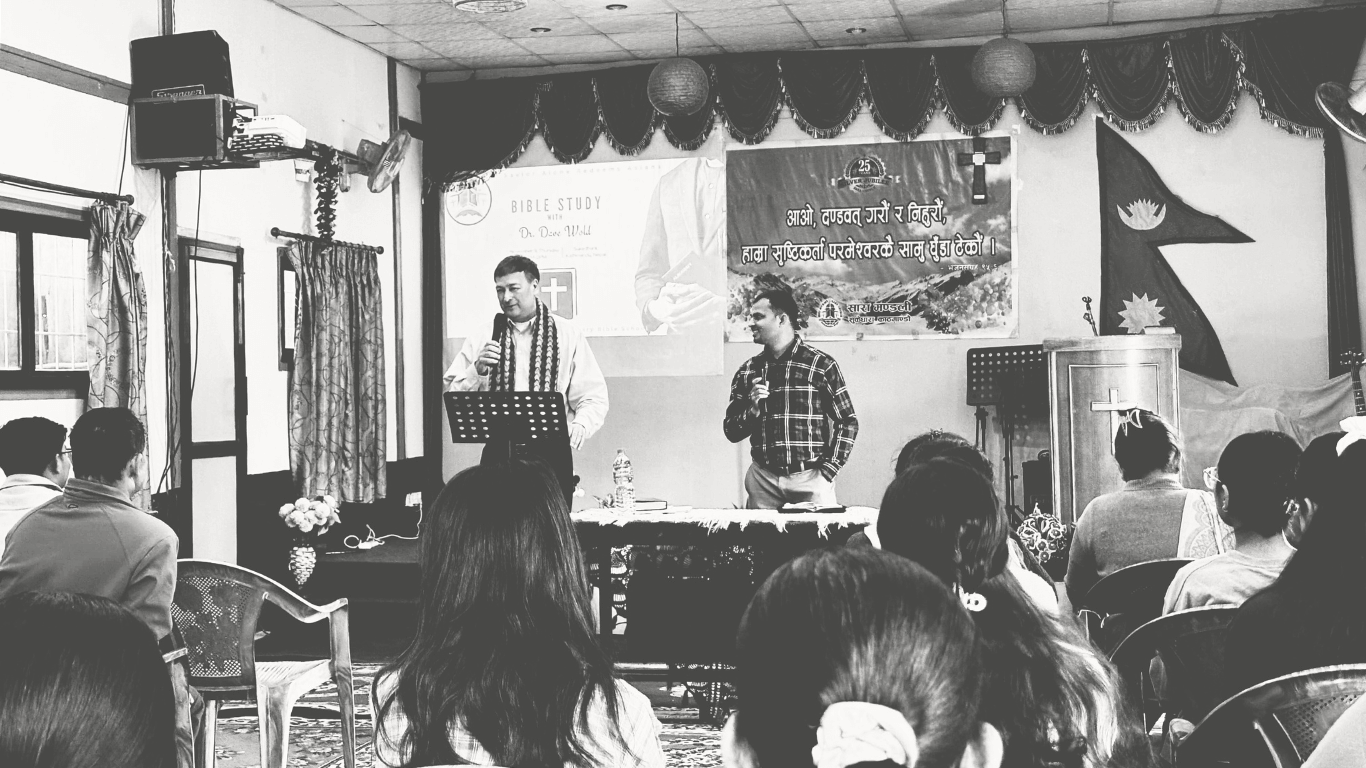International Bible Trainings

"Be diligent to present yourself to God as a worker who does not need to be ashamed,
accurately handling the word of truth." 2 Timothy 2:15
Dr. David Wold conducts international trainings as a teacher of teachers and pastor of pastors. This well-studied man of God has all the credentials for such a ministry. He received Christ at nine years of age and immediately began studying the Word and sharing his faith. As a junior in high school, he led his first of many Bible studies. In Bible college he was actively involved in preaching and teaching. At the university, David volunteered with the Navigators, discipled friends, and yes, led Bible studies.
Over the years, David has embarked on many mission trips. He eventually became a full time missionary in Latvia. By God’s grace, he assisted in the start of two Bible schools. The first was in Latvia; the second was in Albania. In both cases, they were the first Bible institutes in these respective countries in over fifty years. Both Bible institutes are still in operation.
When the uprising in Albania took place in 1997, David returned to the US. Since that time he has pastored several different churches. However, missions never went neglected. He uses nearly all of his vacation time every year to travel and teach in a variety of countries. At this present time, David continues to pastor. Additionally, he serves in a dual role as a missionary with Serving Workers for the Harvest and travels three months a year to teach pastors in seminaries and conferences.
The Demand
The need for David’s global ministry is great. Many pastors are leading churches without adequate knowledge or training in the Bible. There is no comparison between the access America has to biblical training and that of the rest of the world. Whether because of persecution, a lack of Bible institutes, or a combination of both, proper education is scarce. Yet, these sincere disciples of Jesus desperately want to learn. Particularly lacking among these leaders is a proper understanding of Bible interpretation skills. That is essential for effective ministry.
In one of his trainings the hosts asked David to remove his shoes before teaching the lesson. Even though he has a prosthetic leg, David could not convince the hosts to make an exception. David reluctantly obliged, finished the lesson shoeless (and absent one leg).
He then inquired about their strange demand. “Moses was told to take his shoes off when approaching the burning bush”, the leaders replied. That was true . . . for Moses. But David, understanding that they were wrestling this passage out of context, asked them the following question: “How many of you are going to start building an ark?” Is it not also a command in Scripture (to Noah)? The host got the point.

David has taught a variety of Bible courses throughout the years, with a particular passion for end times prophecy. He holds a PhD in eschatology and specializes in teaching the books of Daniel and Revelation.
To promote deeper personal study, David frequently challenges others on how to think biblically. The key for doing so is by asking the right kind of questions. When studying Bible passages, he instructs the students to answer the following questions: “Who?”, “What?”, “Where?”, “When?”, “Why?, “How?”, and “What difference does it make?”. The objective is that the student learns how to teach himself through the guidance of the Holy Spirit and systematic thinking.
The Response
In response to these trainings, leaders are enthusiastically taking on the challenge to do something great. Before attending David’s lessons, one pastor’s ministry included only a tiny assembly in a dirt building, for instance. Today, this ministry oversees numerous churches, a school of 500 Muslims, and an orphanage with 20 kids. Through ministers like Dr. David Wold, leaders are gaining the skills to carry out their God-given assignments with boldness and accuracy.
In closing, David invites readers to get involved in world missions according to the Great Commission and to remember the only thing we get to bring with us into eternity is souls. David also presents the contrast between the and Paul’s prayer in the New Testament (below). The first is a request to be kept from pain while the second is an expression of gratitude for the pain. In the spirit of asking the right question, consider choosing either “What can God do for me?” or, “What can God do through me?”.
On occasion, David presents the contrast between the prayer of Jabez and Paul’s prayer in the New Testament (below). Both are legitimate prayers. But is one more Christ-honoring than the other? The prayer of Jabez is a request to be kept from pain. By contrast, Paul’s prayer is an expression of gratitude through pain.
Concerning this thing I pleaded with the Lord three times that it might depart from me. And He said to me, "My grace is sufficient for you, for My strength is made perfect in weakness." Therefore most gladly I will rather boast in my infirmities, that the power of Christ may rest upon me. Therefore I take pleasure in infirmities, in reproaches, in needs, in persecutions, in distresses, for Christ’s sake. For when I am weak, then I am strong.
2 Corinthians 12:8-10
In the spirit of asking the right question, David challenges Christians to ponder either: "What can God do for me?" (Jabez) or, "What can God do through me?" (Paul).
In closing, Dr. Wold invites all believers to become involved in world missions. He reminds us that the only thing we can bring into eternity are the souls of men and women. To God be the glory!